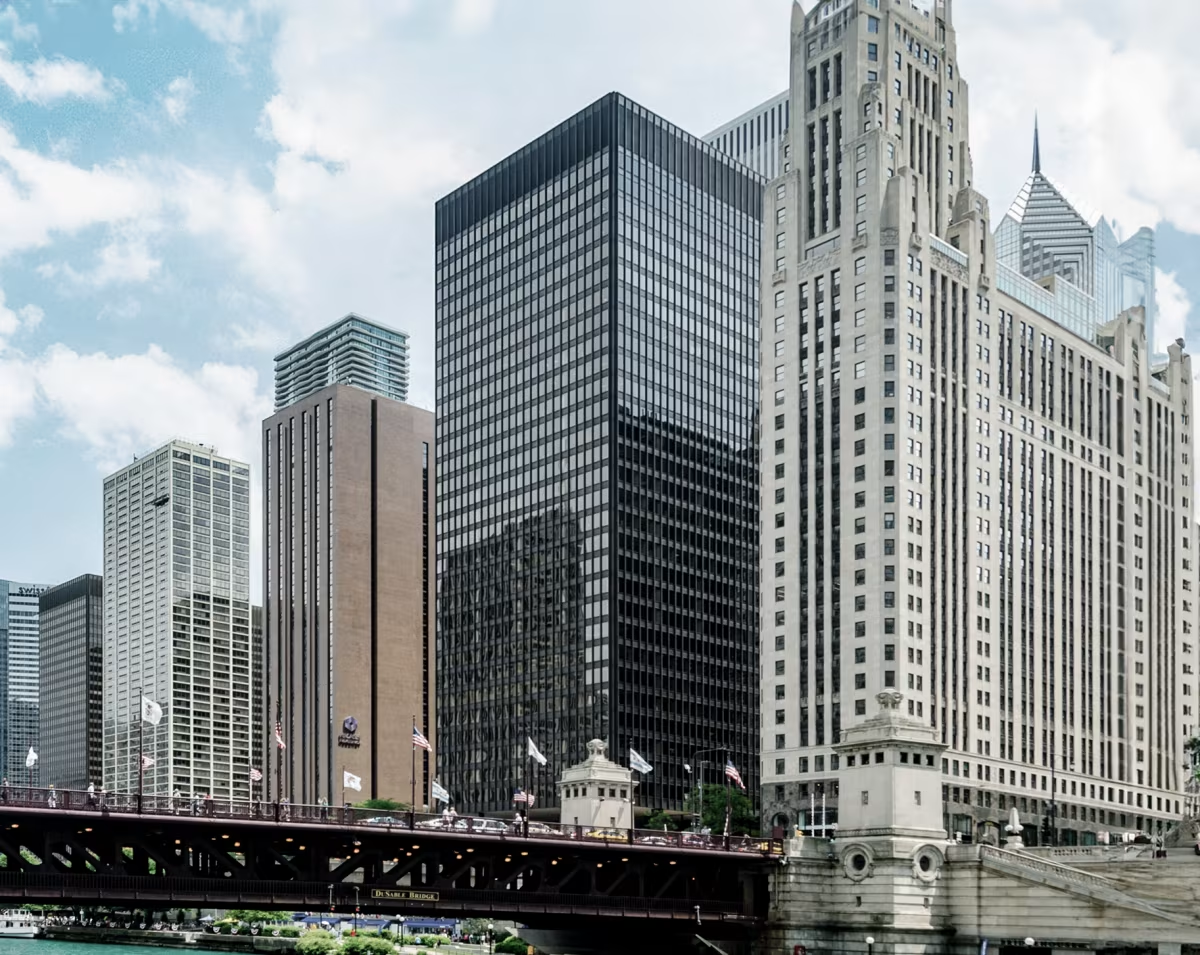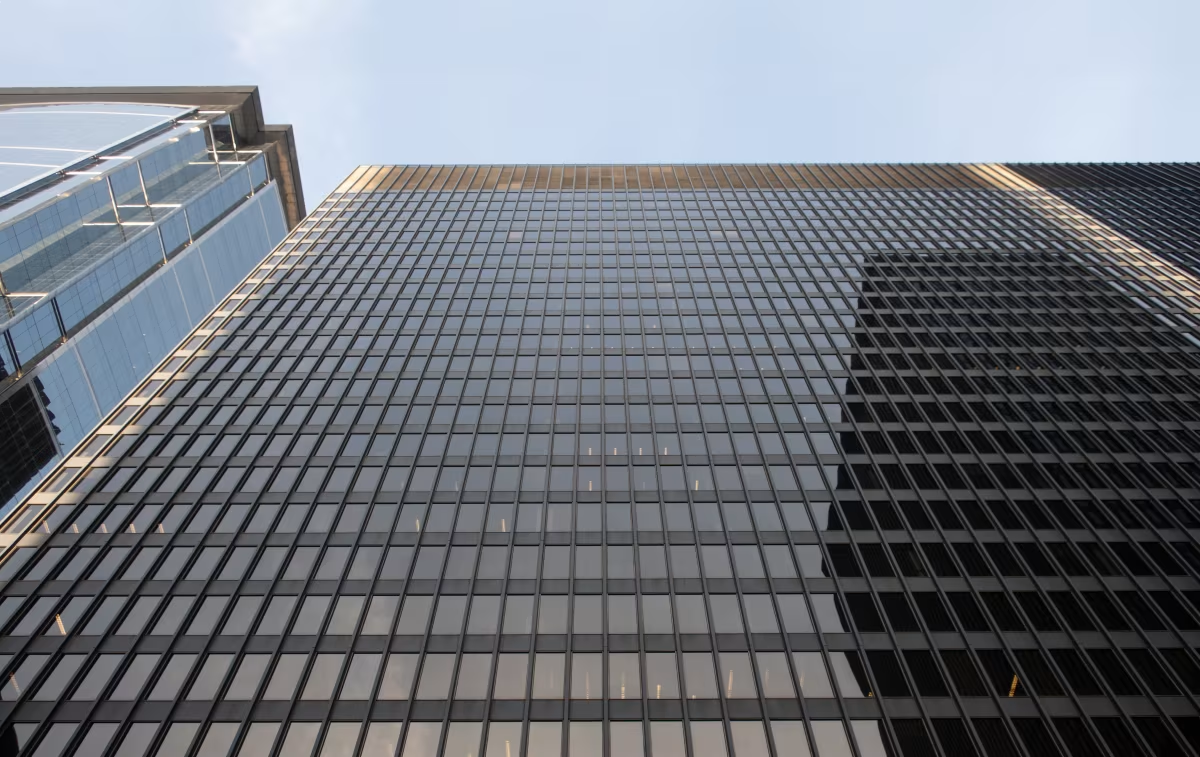One Illinois Center vs Everett McKinley Dirksen U.S. Courthouse


Comparing the One Illinois Center and the Everett McKinley Dirksen U.S. Courthouse is particularly interesting because they share the same skyline in Chicago, IL, and were both designed by Mies van der Rohe. However, they were completed more than 6 years apart.
This offers a unique perspective on how the architect's style and the city's architecture evolved over time.
Height & Size
These two towers present an interesting contrast in their proportions. The Everett McKinley Dirksen U.S. Courthouse rises higher at 384ft (117m), while the One Illinois Center reaches 361ft (110m). However, the One Illinois Center accommodates more floors with 30 levels above ground, compared to 27 floors in the Everett McKinley Dirksen U.S. Courthouse.
This suggests different approaches to interior space design. The Everett McKinley Dirksen U.S. Courthouse has an average floor-to-floor height of approximately 4.3m, while the One Illinois Center has more compact floors averaging around 3.7m each. The taller building's more generous floor heights might indicate grander interior spaces, higher ceilings, or different programmatic requirements.
These different proportions likely reflect the specific needs each building was designed to serve, whether driven by zoning regulations, client requirements, or the intended use of the spaces within. The contrast shows how architects can achieve different spatial experiences even when working with similar overall building scales.
Architectural Style
Both the One Illinois Center and the Everett McKinley Dirksen U.S. Courthouse were designed in line with the aesthetic conventions of the International Style style.
At the time, this style was at the height of its popularity. So Mies van der Rohe followed what was in many ways expected at the time, producing designs that fit comfortably within contemporary architectural norms rather, than breaking with convention.
Uses
The One Illinois Center is primarily commercial, while the Everett McKinley Dirksen U.S. Courthouse is primarily governmental.
The One Illinois Center also provides 866 parking spaces.
Structure & Facade
Both the One Illinois Center and the Everett McKinley Dirksen U.S. Courthouse rely on a Frame structural system.
A frame structure uses a grid of columns and beams to carry the building's loads. This frees the walls from structural duties, allowing for flexible floor plans and larger windows.
They also employ the same type of facade, a Curtain Wall facade.
A curtain wall is a non-load-bearing facade hung from the structural frame. It is anchored to floor slabs and transfers only its own weight and wind loads, allowing for sleek, glassy exteriors.
| One Illinois Center | Everett McKinley Dirksen U.S. Courthouse | |
|---|---|---|
| Mies van der Rohe | Architect | Mies van der Rohe |
| 1967 | Construction Started | 1960 |
| 1970 | Year Completed | 1964 |
| International Style | Architectural Style | International Style |
| Commercial | Current Use | Governmental |
| 30 | Floors Above Ground | 27 |
| 4 | Floors Below Ground | 3 |
| 110 m | Height (m) | 117 m |
| Frame | Structure Type | Frame |
| Concrete | Vertical Structure Material | Steel |
| Concrete | Horizontal Structure Material | Reinforced Concrete |
| No | Facade Structural? | No |
| Glass, Steel, Aluminum | Main Facade Material | Glass, Steel, Aluminum |
| IL | State | IL |
| Chicago | City | Chicago |
| 111 East Wacker Drive | Address | 219 South Dearborn Street |